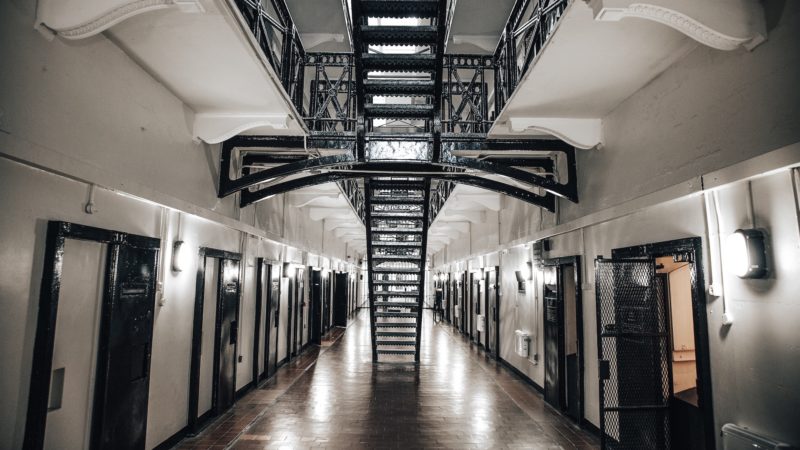
David Lammy has warned of a “damaging” and “dangerous” situation in English prisons after the government has continued with Covid restrictions that leave many prisoners stuck in their cells for 23 hours a day.
Reacting to the announcement of a number of new measures today aimed at reducing the spread of Covid in prisons, the Shadow Justice Secretary said that the rules were “inevitable” after Downing Street failed to curb the UK’s rising infections.
The restrictions include a ban on social visits for adult prisoners in England as well as a continuation of previous measures introduced in March, which saw many inmates confined to their cells for almost the whole day.
Commenting on the restrictions for prisons, the Labour justice spokesperson said: “The government’s failure to act fast enough or decisively enough to control this pandemic has made further restrictions in prisons inevitable.
“Locking prisoners in their cells for 23 hours per day for many months, without access to rehabilitation or family visits, is not only damaging for mental health, it is dangerous.
“The less opportunity prisoners get to turn their lives around inside, the more likely they will re-offend when they are let out. The government must learn from its mistakes by using the extra time the second lockdown buys to finally get control of the pandemic.”
Justice minister Lucy Frazer defended the new restrictions this morning by suggesting that they are necessary to “protect the lives and wellbeing” of prison staff and inmates and that the government had “learned lessons” from the first lockdown.
Frazer also suggested that the “action and tough decisions” taken by the government earlier in the year during the first wave of the pandemic were effective, and said they had “limited the spread of the virus in our prisons and saved lives”.
The severe regime of restrictions from March reduced the time that prisoners could spend outside their cells to around 30 minutes a day, suspended prison transfers and required new arrivals to quarantine for 14 days.
The chief inspector of prisons in England and Wales warned last month, before the announcement of the new lockdown, that locking up prisoners in what amounts to solitary confinement was causing “irreparable damage” to their mental health.
Publishing his final annual report before stepping down from the role, Peter Clarke highlighted the dangers of the current restrictions and expressed concerns that “very little” was now being done to stop prisoners from reoffending in future.
English prisons have been the sites of several outbreaks of the virus. HMP Lowdham Grange in Nottinghamshire saw a large spike in cases last month after a total of 172 prisoners and 43 staff tested positive.
The most recent data on the spread of coronavirus in prisons, covering the period up to August 31st, found 560 reported cases across all prisons in England and Wales, lower than the early estimations that case numbers could exceed 77,000.
Analysis from September found that Covid rates in prisons when adjusted for age are higher than in the wider community. At that time, there were 7.6 cases per 1,000 population in prison, compared to 4.9 per 1,000 in the overall population.
Lammy’s criticism of government inaction mirrors comments made by Labour leader Keir Starmer, who called for a short ‘circuit breaker’ lockdown weeks ago but saw the call rejected by Boris Johnson in favour of his tiered Covid restrictions.
Since then, the government has been forced to implement its own nationwide lockdown for England, which will last a month compared to Labour’s proposed two or three weeks and comes weeks after SAGE first warned of rising infection rates.
Starmer accused the Prime Minister in Monday’s House of Commons Covid update of having “overpromised and under-delivered” at “every stage” of the crisis and highlighted “the human cost of the government’s inaction”.




More from LabourList
‘Labour is being badly misled on housing’
Reeves bets on patience over populism
‘Energy efficiency changes must work for older private renters’